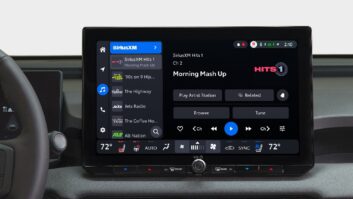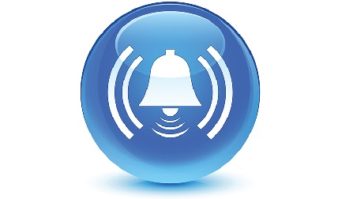Here’s a brief, true story.
Not long ago I began broadcasting on a couple of FM frequencies with programming that is 100 percent locally produced spoken word. No music whatsoever is broadcast on either frequency.
About a month after I began operations I received a bill from the American Society of Composers, Authors and Publishers. ASCAP collects money from broadcasters, bars, Web sites and anyone else who plays music created by the people it represents when the music is played in a commercial enterprise or public forum.
Because I was not and am not using any of the material that ASCAP’s members have copyrighted, I disputed this bill. I received another a month later but the matter was resolved rather painlessly soon after that.
This got me thinking. What if the cable industry monitored local real estate transactions and automatically started invoicing all new homeowners?
People would be outraged. There would undoubtedly be allegations of fraud, and complaints filed at the Federal Communications Commission, the Federal Trade Commission and with lawmakers. Yet ASCAP apparently does essentially the same thing and few people seem to care.
Why is this? Well, one reason might be that ASCAP is targeting only a small segment of society and that these people are accustomed to being abused by the music industry. But whatever the reason there’s no question that ASCAP, the Recording Industry Association of America and similar organizations have been encouraged to become what they are by our copyright law.
Perhaps it’s time for society in general to recognize what some have known for years: Our copyright laws are broken and are badly in need of repair. They are stifling innovation and denying consumers access to products and content in what I believe to be a violation of the U.S. Constitution.
Unconstitutional
Now that’s some statement, so let me explain.
Article I, Section 8 of the U.S. Constitution grants to Congress the power “to promote the progress of science and useful arts, by securing for limited times to authors and inventors the exclusive right to their respective writings and discoveries.”
Pay particular attention to the words “limited times” in that passage, for current U.S. law gives the author of a sound recording copyright protection until 70 years after he or she dies. In my opinion that does not fit the definition of limited time.
The framers of the U.S. Constitution knew how to say that something was to last a lifetime, for that’s what they did when describing the terms of federal judges. In contrast, they limited the term of the president to four years. While they didn’t specify a duration for copyright protection, they very clearly said that it should be for a limited time. And the very first copyright law enacted by the first Congress in 1790 provides a good indication of what the framers of the constitution were thinking: a 14 year copyright term with a privilege of renewal for one more 14 year term.
One hundred and fifty two years is a farcical interpretation of “limited time,” yet today that’s how long an 18-year-old copyright owner will have protection if she lives to be 100.
The general public needs to understand how our current copyright law is hurting all of us. People need to know what’s wrong and what they can do about it.
Stifling innovation
In short, what’s wrong is that we are being denied the opportunity to have innovative new products that would dramatically improve our lives.
Imagine being able to buy a low-cost portable media player that comes pre-loaded with every song that hit the Billboard charts in the ’70s or ’80s, and imagine being able to copy and share those songs freely with anyone you choose. If copyright owners had the same protection as patent owners, this is exactly what you’d be able to do.
Imagine if radio receivers could automatically store every song broadcast by a radio station, enabling consumers to play them back whenever they want, wherever they want. The technology to do this is simple today, but it’s practically impossible to find it in the marketplace because the greedy music industry likes to sue companies that make it easy for consumers to save what they’ve recorded off the radio.
Were it not for the music industry’s never-ending effort to prevent technological development so that it can continue to reap profits from songs created half a century ago, the services we have today would be so much better.
We would have radios that automatically store, sort and play back content. Imagine if your favorite radio station regularly broadcast different up-to-the-minute traffic reports for each major traffic artery in your community. You could program your receiver to store and play back only the reports for your route, on demand.
Even though such a service would be of great benefit to society and would not involve the use of music at all, the recording industry vociferously fights to block the technology that would enable it because it could also be used to let consumers record songs off the radio.
In 2007 the RIAA published a paper bragging about how the music industry has been able to keep prices high, even as the cost of distributing music has plummeted dramatically. The only reason it’s been able to do this is our broken copyright law. If copyrights on songs had the same terms as the patents on recording media, CD players, MP3 players, etc. there would be a strong incentive for the music industry to produce more product at more competitive costs.

Cost of Audio CD vs. Cost of Equivalent HDD Space If songs with expired copyrights were available at little or no cost, there’d be a strong incentive to produce new music that would still have copyright protection. And we would undoubtedly have many more modern remakes of popular songs from the past.
The accompanying graph compares the retail cost of a CD with the cost of the amount of hard disk space needed to store 10 three-minute songs. It clearly illustrates how our patent laws have encouraged the consumer electronics industry to bring better and better products to market, providing dramatically more value to society over time. And it illustrates just as clearly how our copyright laws have encouraged the music industry to keep doing the same old thing, providing no added value to society over time.
I own 48 different CDs from one of my favorite artists. Nine of these CDs are two-disc sets, making 57 different discs. On these 57 discs there are 742 songs, but only 315 unique songs. This means that, on average, each disc has only about 5-1/2 new songs, with the rest being songs that I’ve already purchased.
This is what happens when an industry is granted intellectual property rights for life. Instead of more, innovative, better products society gets the same old song, again and again.
It’s not supposed to be this way
In sharp contrast to our copyright laws, our patent laws encourage innovation. This is true not only in the consumer electronics industry but in many other industries as well.
Take the drug industry, for example. In 2001 the patent on the anti-depressant drug Prozac expired, enabling competitors to begin manufacturing the drug using different, generic brand names without paying royalties to the patent owner. Until that time Eli Lilly, Prozac’s manufacturer, had a monopoly on the drug and was able to charge rates that would help offset its research and development costs. When the first generic version hit the market in August 2001, Lilly was charging $2.17 per capsule. The generic version cost $1.91 per capsule and immediately captured almost half of the market. Within a year more generic versions were on the market and the price per capsule had plummeted to $0.32, with generics taking almost 90 percent of the market.
This is the way our intellectual property rules are supposed to work. This is the way they did work for both patents and copyrights, until the recording industry went to work in Washington in the last century and got Congress to legislate lifetime copyright protection that extends 70 years after death.
We should all thank our lucky stars that the greedy people running the music industry aren’t running the pharmaceutical industry. A month’s supply of aspirin would probably cost us $100. And if we needed Prozac to deal with the high cost of drugs — and music — we’d probably have to shell out $200 a month for that, too.
It’s time to rein in our out-of-control copyright law. It’s time to bring the protection granted to copyright owners back in line with the protection granted to patent owners. It’s time to fix drugs and rock & roll.
We need a grass roots movement to create a groundswell of public support to make this happen. Elected officials generally care about two things: raising money for campaigns and votes. The music industry’s been busy suing people, taking their money and giving it to lawmakers so Congress will keep the ridiculous copyright laws in place. It’s hard for ordinary Americans to compete with the money flowing to lawmakers from the music industry. But we can win with votes.
It’s easier than ever for people to make themselves heard in Washington through phones calls, e-mails and letters. And enough voters can trump even the largest campaign contributions. So let’s put all of our modern technology to good use and start sharing stories of how copyright law is stifling innovation. Let’s share them with each other, and with Congress. And let’s keep it up until the law is changed.
Dave Wilson’s commentaries are a recurring feature in Radio World. Wilson is owner of WHDX(FM) and WHDZ(FM) on Hatteras Island, N.C. He is also senior director, technology & standards at the Consumer Electronics Association. His views are his own and do not necessarily represent the views of CEA or its member companies.






